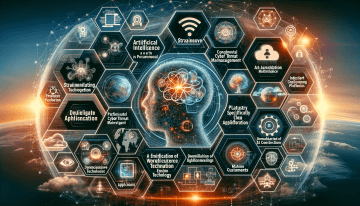About us > ASN News
Gartner presents the ten most important strategic technology trends for 2024
Analyst firm Gartner recently published its annual report charting the top ten strategic technology trends for the next three years. These technology trends are expected to have a significant impact on companies' digital transformations and IT leaders' decision-making. Key technology trends that companies should focus on over the next three years include AI as a partner, continuous cyber threat management, sustainable technologies, platform engineering, augmented application development using AI, industry cloud platforms, intelligent applications, democratization of generative AI, augmented connected workforce, and machine customers.
These technology trends fall into three main categories - protecting corporate investments, the rise of technology creators, and delivering value to customers. Getting the timing right for implementing these trends can help a company build a competitive advantage, increase productivity and safety, and better respond to customer needs.

Artificial intelligence as a partner
The first trend is the use of artificial intelligence as a partner. This is a set of tools and processes that ensure the safety, reliability and fairness of AI systems. These tools can help companies improve the accuracy of decision-making, detect anomalies in data and models, and ensure that AI systems are more trustworthy overall.
Continuous cyber threat management
Another important trend is the continuous management of cyber threats. This is a systematic approach to continuously optimise cybersecurity priorities and protect against attacks. This approach allows companies to respond flexibly to new threats, detect vulnerabilities and focus on the most critical areas.
Sustainable technologies
As pressure for environmental and social sustainability grows, sustainable technologies are beginning to play an increasingly important role. These are digital solutions that help companies achieve environmental, social and governance goals and promote long-term ecological balance. These include technologies to monitor impacts, reduce carbon emissions or improve working conditions.
Platform Engineering
Platform engineering is a discipline that focuses on developing and operating internal platforms within an organization that make developers' jobs easier and accelerate the delivery of value to customers. These include tools for automated testing, component management or application deployment. This leads to increased developer productivity and the ability to work independently.
Enhanced application development with artificial intelligence
A revolution in software development is now taking place thanks to new tools using artificial intelligence, such as generative models and machine learning. This innovative technology enables the automatic generation of source code, the conversion of legacy applications into modern programming languages and the expansion of testing capabilities. The result is increased developer productivity and faster development of high quality applications.
Industry-specific cloud platforms
Instead of one-size-fits-all cloud services, industry-specific cloud platforms that are tailored to the needs of specific industries are becoming increasingly popular. The modularity of these platforms makes it easy for companies to tailor their cloud solutions to their own needs and respond flexibly to innovation and change in their industry.
Intelligent applications
Traditional enterprise applications are enriched with artificial intelligence capabilities that enable them to better understand context, make more accurate predictions and recommendations, and adapt to end users. The use of conversational AI, predictive models, and adaptive personalization is expanding across the enterprise application portfolio.
Democratising generative AI
Generative AI models, such as DALL-E and ChatGPT, are experiencing rapid development and becoming available to a wider range of users. This will allow them to automate routine tasks, improve employee productivity, reduce costs and open up room for growth. However, it is important to pay attention to the ethical aspects of the use of these technologies and apply an appropriate level of regulation.
An enhanced connected workforce
With the advent of digital technologies and automation, the human workforce is also undergoing a transformation. The strategy for an enhanced connected workforce focuses on connecting workers with smart technologies and data analytics to help them streamline their work. These include recommender systems, augmented reality and intelligent personal assistants. This leads to shorter onboarding times for new hires, speeding up routine tasks and increasing overall productivity.
Machine customers
The latest trend is machine customers. These are smart devices that are able to independently purchase products or services through payments and interaction with digital stores and platforms. Analysts estimate that by 2030, machine shoppers will generate trillions of dollars worth of purchases. This will be a whole new, highly lucrative customer segment for businesses.
Outlook
Technologies related to artificial intelligence, sustainability, cloud platforms and connecting people with digital systems will thus play a key role in the next three years. Getting the timing right for implementing these innovations can give companies a competitive advantage and long-term prosperity. In particular, a focus on protecting corporate investment in new technologies, empowering internal developers and maximising alignment with customers' digital needs will be key.
Become one of our trusted clients




Take your product to the next level!
Book a consultation with our specialists and discover just how many technological possibilities are within your reach. We’ll be in touch soon to explore the best way to work together.
